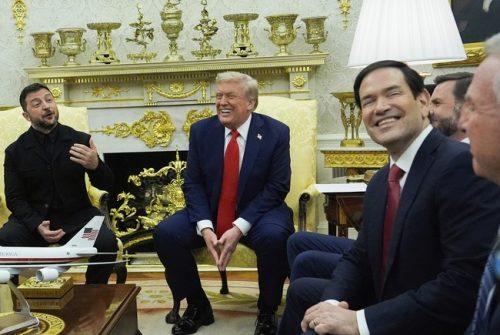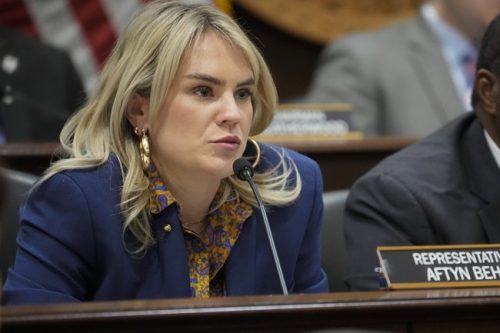The piece pushes back on a media-driven controversy about troops and “illegal orders,” arguing the claim is speculative and politically motivated, highlights a GOP lawmaker cutting through the narrative, and criticizes the condescension coming from Democratic commentators and legacy outlets.
This story starts with a simple point: the latest media panic about troops refusing “illegal orders” is a manufactured narrative that doesn’t hold up under scrutiny. Reporters and cable hosts are floating hypotheticals instead of facts, and that gap collapses fast when you demand real examples. The result looks less like oversight and more like political theater designed to sway public emotion.
🚨 NEW: Congresswoman Lisa McClain SILENCES Wolf Blitzer after he asks: “Should members of the US military or intelligence community obey what are clearly illegal orders?”
McCLAIN: “You're asking an enlisted person for their opinion on what they think is legal or illegal. That's… pic.twitter.com/DBL2Cqf6al
— TV News Now (@TVNewsNow) November 24, 2025
The line pushed by some commentators — telling enlisted personnel to decide what they will and won’t obey — is dangerous as a principle and dishonest as a political trick. Voters aren’t being told about any specific illegal orders because none have been issued or even described. When a claim depends on an imaginary event, the claim has no teeth and no credibility.
Representative Lisa McClain of Michigan stepped in and refused to play along with the setup, cutting through the speculation by pointing to the reality of the military chain of command. “You’re asking an enlisted person for their opinion on what they think is legal or illegal. That’s a pretty slippery slope. Follow your commander in chief. That’s the oath that you took,” she said. Her answer landed because it addressed the core of military discipline and the oath service members take, pushing back on the effort to turn rank-and-file troops into political arbiters.
There’s also a patronizing tone baked into much of this commentary, as if Democrats and some pundits believe they possess a monopoly on patriotism. That attitude shows up whenever results don’t go their way: instead of accepting outcomes, they craft new crises to validate their outrage. It’s less about national security and more about maintaining a narrative that makes them look like the reasonable guardians of democracy.
This kind of media stunt has predictable effects. It rallies their base and alienates everyone else by smearing entire institutions and individuals without clear evidence. It also risks eroding trust in the very structures most people rely on for safety and order, because it replaces sober debate with emotional theater. Responsible oversight looks for facts, not hypotheticals designed to generate headlines.
For Republicans and conservatives, the right response is straightforward: defend the rule of law, respect military discipline, and call out fear-mongering when it’s based on zero evidence. This isn’t about silencing legitimate questions about orders that truly are unlawful, it’s about rejecting a manufactured panic that conflates hypothetical scenarios with real wrongdoing. When opponents trade careful argument for dramatics, it’s reasonable to push back hard.
There’s another practical angle here: asking enlisted personnel to interpret legality on the fly undermines unit cohesion and command authority. Military efficiency depends on following lawful orders and channeling disputes through established legal and administrative processes. Encouraging soldiers to treat news segments as legal guidance is irresponsible and could put lives at risk in real operational contexts.
Media organizations that amplify these speculative attacks are taking a political risk of their own. If they keep pushing narratives that collapse under basic scrutiny, they weaken their credibility and hand conservatives the moral high ground on issues of order and duty. At the same time, lawmakers who refuse to fall for the setup can turn the conversation back to facts and policy instead of getting dragged into manufactured controversies.
At its core this episode shows how quickly political theater can be dressed up as a national security concern, and why citizens should demand clarity over drama. Policymakers, reporters, and citizens all have a responsibility to insist on concrete examples before accepting sweeping allegations. When they don’t, the public is left with headlines but no answers, and that benefits nobody except the same people who thrive on chaos.






